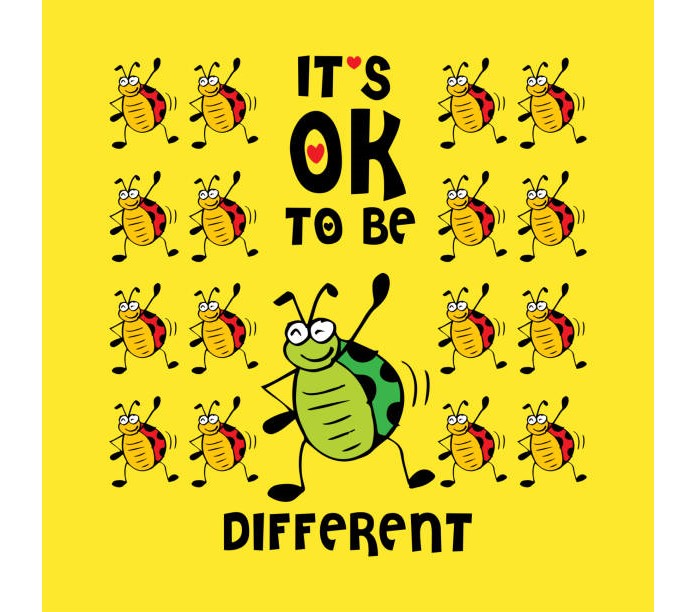This topic has arisen recently. I am not a specialist in autism and anyone particularly interested in this issue would need to do their own research.
I offer this caveat as I offer no definition or description of ‘autism’ and what it is. There is a useful article on autism in adulthood written by Erin Bulluss, Ph.D., and Abby Sesterka at: https://www.psychologytoday.com/gb/blog/insights-about-autism/202001/when-late-diagnosis-autism-is-life-changing
I am touching on it as I have worked with people who elect to accept the description, ‘autistic’, as helping to explain some of their own behaviour and beliefs. I work only with adults, and I meet a lot of people who believe they have this condition, without a diagnosis. Also, I meet people exhibiting features of autism who are reluctant to explore the label.
One source to investigate
If you want to explore this subject further, then there is a blogger speaking about the adult experience of autism from a better-informed angle. His name is Dan Carney from London’s South Bank University. I was impacted by his review of some research from Australia, conducted by Rozanna Lilley.
One useful starting point offered to me by one reader relates to safety issues for people regarding themselves as autistic. Do let me know if this is a good place to go in-line.
Autism and anxiety: possible connections
What I do know from my work is that there is a connection between autism and an anxiety response. I’m not sure what that connection is. Better informed people have suggested it could be that:
- anxiety is completely separate from autism. It looks exactly the same in people with autism as it does in others, or
- having autistic traits increases the risk of anxiety. After all, when it is difficult to understand our social world, or make sense of our experiences of bullying, I could argue there are simply more triggers of anxiety around, or
- the sensitivity to loud noises or other sensory input – common to autism – can generate anxiety when we notice other people do not have that and we notice that we are very different from others, or
- anxiety is simply part of autism often characterised by the tendency to insist on sameness and/or avoidance of social situations.
What labels exist to describe anxiety that gets out of hand?
There is a cluster of labels that describe different ‘anxieties’. In general, any excessive fear of people, objects or situations can create anxiety. It arises from an experience of threat and that experience can be normal and even life-saving in some situations. That experience stimulates our Amygdala and initiates the fight, flight, freeze and faint circuits. The several labels of anxiety include:
- Social anxiety disorder involves a fear of being around other people, having conversations, and being judged.
- Generalized anxiety disorder involves excessive worry about various things, such as relationships or work. Sufferers tell me they experience restlessness, being easily distracted with problems sleeping. These reactions promote tension, and irritability
- Panic disorders. These can occur when someone has recurring, often unexpected, attacks of intense fear. These reactions manifest in trembling, sweating and other physical symptoms and these can continue for many minutes.
- Phobias involve fear of specific objects or situations. The fear promotes avoid and of the feared object. Common examples are animals, heights, getting an injection, or blood. Who remembers Doc Martin on the UK TV?
- Separation anxiety disorder is an intense worry about being away from parents, or home. This feature is often connected, in its turn, to an early years attachment trauma.
- Obsessive Compulsive Disorder (OCD), is characterized by obsessive fears (of germs, for example) and compulsions, such as frequent hand-washing, to suppress those fears. Compulsions in OCD seem to serve a different purpose than repetitive behaviors, such as hand-flapping, found in autism.
- Post-traumatic stress disorder (PTSD) may occur after experiencing or witnessing a traumatic event. Since 2013, OCD and PTSD are now viewed as separate disorders, not only an anxiety condition.
A special case of anxiety that can arise is performance anxiety, sometimes referred to as stage fright. That last name may not be helpful as performance anxiety can arise in many situations – not just on the stage. It can arise in any public situation – in college, in a shop or in a group meeting.
I have taken this material from the second website listed below, so it could provide a good beginning for your own research. Also, if you are seeking more practical advice from a UK-based website, have a look at:
https://www.islts.co.uk/autism-assessment-service/
More specific information on tests for autism can be found at:
https://www.wpspublish.com/ados-2-autism-diagnostic-observation-schedule-second-edition.
This is an American site and it is worth noting that there are qualification limits on people eligible to administer this otherwise pretty expensive test. There is a more general explanation for the Autism Diagnostic Observation Schedule at:
https://en.wikipedia.org/wiki/Autism_Diagnostic_Observation_Schedule
Further leads that may help
How to design a small safe experiment
It’s easy to miss important things
